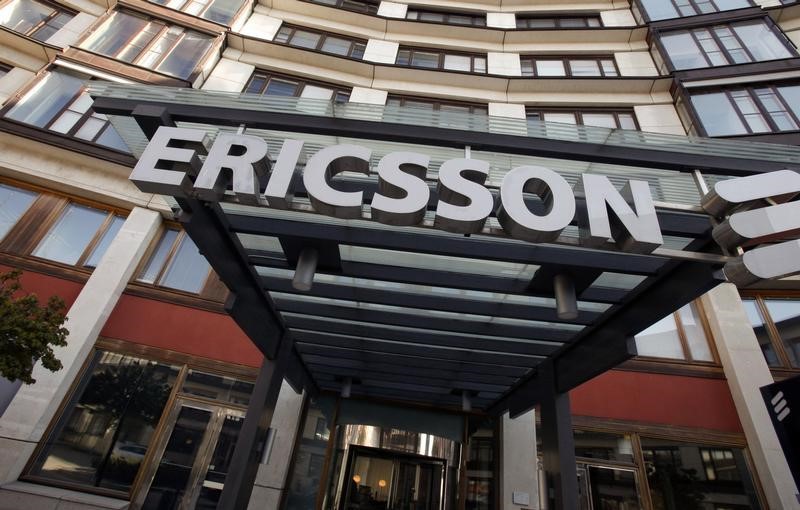This post was originally published on this site

Investing.com — Few companies have as much reason to be as grateful to Donald Trump as Ericsson (ST:ERICb).
Europe’s largest maker of telecom network equipment seemed on a slow route to junior status, if not quite irrelevance, on the world stage as China’s Huawei swept all before it in the first two decades of the millennium.
However, the U.S. President’s assault on Huawei has changed all that. The Swedish company is enjoying a new lease of life as the U.S. and – slowly – its allies, squeeze the Chinese company out of their vital infrastructure, fearing that it enables and facilitates the rampant and increasingly sophisticated industrial and military espionage practised by Beijing.
That political choice has given Ericsson and its Finnish-based rival Nokia (HE:NOKIA) an effective duopoly in Europe and a much stronger position in North America, just as operators are having to spend billions on upgrading their networks to the 5G standard.
The hallmark of any monopolist or duopolist is margins and, after years of struggle, the easing of competition is having an increasingly clear effect on Ericsson. The company’s operating margin rose to 8.2% from 7.0% a year ago, with a particularly strong expansion in the group’s Digital Services division. The gross margin excluding restructuring charges widened by 1.8 percentage points over the first half, compared to the same period a year ago. Changes in the product mix and the falling away of previous investment costs also helped.
Despite obvious challenges to the business environment, the group recommitted to its target of an operating margin of as much as 12% within two years.
Ericsson stock leaped more than 10% in Stockholm in response to the news on Friday to their highest in over five years.
Naturally, Ericsson has more going for it than the fact that its most feared competitor has been hobbled. The acceleration of the Working From Home will force network operators to roll out more bandwidth to households than they had envisaged, and faster. So far, that appears to be a bigger factor than the drop in demand from offices and other shared spaces.
But the reality is this: a U.S. ally such as the U.K. is forcing network operators to stop buying Huawei kit from 2021, and to replace it entirely in their networks by 2027. BT Group (LON:BT) reckons this will cost it 500 million pounds ($625 million). Vodafone (LON:VOD) says it could cost billions of pounds. Even allowing for corporate exaggeration and special pleading, it’s clear that Huawei’s loss is someone else’s gain. In many – perhaps most – cases, that someone will be Ericsson, probably for years to come.
Small wonder that Ericsson’s shares are up 18% year-to-date, while Nokia’s are up 14%.



